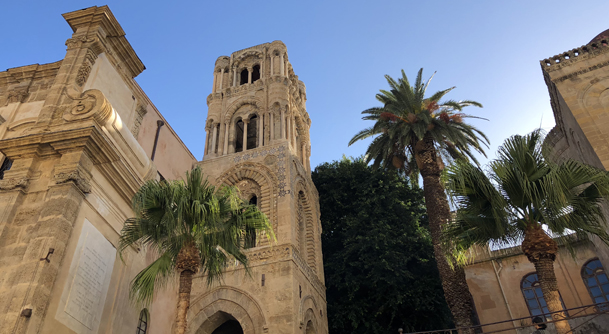Summer School 2018

Summer School on Refugee and Migrant Health
24–28 September 2018, Palermo, Sicily, Italy
WHO in collaboration with the International Organization for Migration (IOM), the European Commission (EC) and the European Public Health Association (EUPHA) is pleased to announce the second edition of the WHO School on Refugee and Migrant Health.
This 5-day intensive course will provide a space for:
- bridging research, policy and practice
- sharing knowledge, experience and good practice from the ground
- fostering debate and critical thinking.
Overview
The School seeks to strengthen participants’ knowledge, understanding and knowhow to manage health systems and public health aspects of refugee and migrant health.
The course is a combination of plenary sessions, workshops and interactive panel discussions. Faculty will consist of international experts from different regions and disciplines relevant to the area of migration and health.
The course will include an all-day field trip to a location receiving regular arrivals of refugees and migrants. It will provide participants with first-hand knowledge of how authorities in Italy are currently managing the public health challenges related to migration.
The School will also provide social events that will facilitate communication among participants, and will foster new professional networks and collaborations in the future.
The School on Refugee and Migrant Health is the flagship activity of the Knowledge Hub on Health and Migration, a joint effort between WHO, the Ministry of Health of Italy, the Regional Health Council of Sicily and the EC.
The Knowledge Hub’s objective is to build expertise and competency on the public health aspects of migration and make knowledge and information in this area widely available.
Target audience
The target audience is high-level health sector and government officials, health sector managers, health and non-health sector policy-makers, public health experts, journalists, and staff of international and nongovernmental organizations.
A number of seats will also be reserved for researchers, PhD candidates and academics with interest in the area of migration and health, as the School also seeks to provide the opportunity to exchange ideas and stimulate debates. Clara Affun-Adegbulu, a young researcher in the Health Policy Unit at the Institute of Tropical Medicine, Belgium, who attended last year’s School, reported: “The best part of the entire 5 days for me was the time spent discussing, debating and exchanging ideas with other young researchers. It was interesting to hear about the work other people were doing, and inspiring to see my passion reflected in them, as we shared stories and experiences”.
The School will accept a maximum of 70 participants. Following a selection process, the organizers will contact the accepted participants.
The course will be delivered in English.
Application
The application process is now closed.
Applicants will be notified about the status of their application by 16 July 2018.
Accepted applicants must confirm their participation by paying a registration fee of €700. This fee covers the costs of tuition, course materials, the field trip, coffee breaks and lunches on all 5 days of the course, as well as 1 evening reception with dinner.
Travel and accommodation
Participants are responsible for organizing and covering their own travel and accommodation expenses. A travel guide with information on transportation and recommended hotels will be made available.
Contact
For further information or queries, please contact the WHO/Europe Migration and health programme at: euwhoeurosummerschool@who.int













